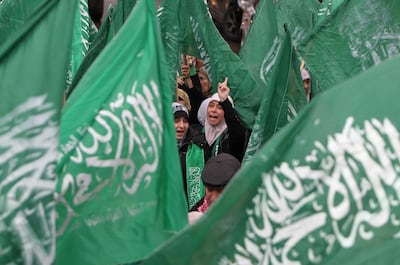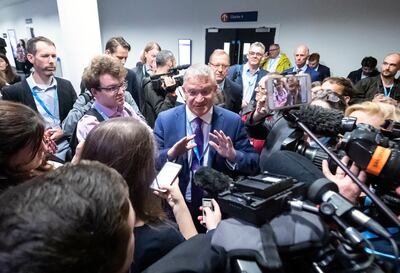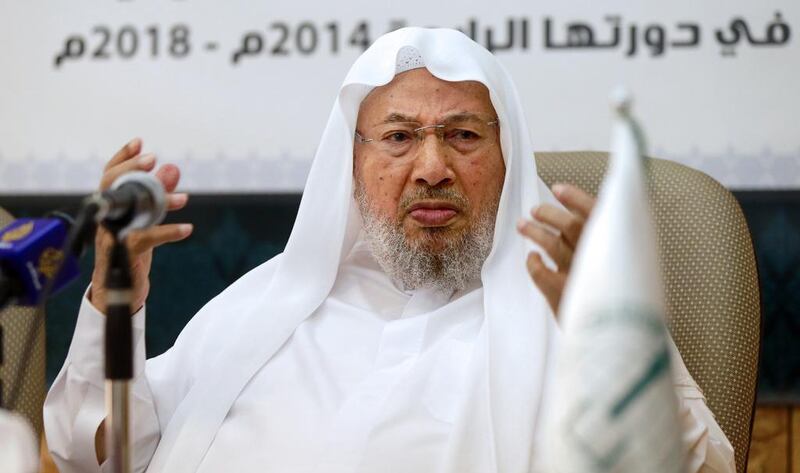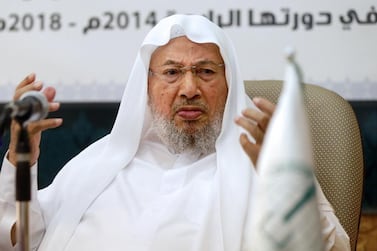Fears have been raised that a lack of coordination within the British government is allowing the Muslim Brotherhood threat to grow.
Whitehall has admitted that there is no central planning between key departments in dealing with the organisation that is proscribed as a terror group in several Middle East countries.
The position has been described as “shocking” by politicians who have called for the organisation to be banned in Britain.
The government’s lack of coordinated action came to light after Ian Paisley, MP asked the Home Office what discussions it “has had with Cabinet colleagues on the activities of the Muslim Brotherhood?” in a written Parliamentary Question.
In response, James Brokenshire, the Home Office minister, said: “There has not been formal inter-Ministerial engagement on the Muslim Brotherhood.”
The reply has been condemned as there are increased worries that the Brotherhood is growing in influence in Britain despite its close ties to militant groups such as Hamas in the Gaza Strip. Additionally, the US considered designating the Muslim Brotherhood a terrorist organisation last year.

Mr Paisley, from Northern Ireland's DUP, told The National that the response was "shocking" and asked why the Home Office was not coordinating with the Foreign Office, Ministry of Defence and the Communities Department to tackle the Brotherhood's influence.
“I take the view that Muslim Brotherhood are the framework that allows the extremist network to grow, it puts in place the financial network and it radicalises people.
“I think the government really needs to up its game and say to anyone, ‘if you're involved Muslim Brotherhood it’s an outlawed organisation and you're going to jail’. That unfortunately doesn't appear to be the will of the government, yet. The Home Office answer certainly suggests that it's standing still or going backwards as opposed to going forwards.”
The MP has held high level discussions raising his concerns about the Brotherhood, pressing ministers to outlaw the organisation. Earlier this year he had a meeting with Home Secretary Priti Patel, involving several experts, and had a similar discussion with Boris Johnson when he was Foreign Secretary. Both ministers suggested that they would move towards outlawing the organisation. But it is understood that the British government will not designate the Brotherhood as a terror group because it is not directly engaged in terrorism in the UK.
MPs from the ruling Conservative Party have also called for the government to ban radical organisations who use Britain as a base to raise funds and radicalise Muslims through community-based organisations and institutions. “I think we have been far too soft for far too long,” Andrew Rosindell, MP, previously said.

Bob Stewart, another Conservative MP, has drawn attention to the Brotherhood’s duplicity as he recalled a visit to Egypt in 2011 to meet members of the group after the removal of president Hosni Mubarak when he was assured it had “no political intentions”.
Mr Paisley has previously criticised a highly controversial mobile phone app released last year by a company whose chairman is Yusuf Al Qaradawi, the Muslim Brotherhood leader who has been based in Qatar for decades.
A previous report by the British government concluded that the Muslim Brotherhood does not directly engage in terrorism in the UK.
“The Government is taking action to stop the spread of extreme ideologies that glorify terrorism, promote hatred and division and threaten our communities, and will use all the tools available to us," the Home Office spokesperson said.
“The activities of those associated with the Muslim Brotherhood in the UK are kept under review.”








